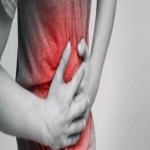Many individuals suffer from occasional mild or moderate stomach issues like indigestion, bloating, and diarrhea. These symptoms can be caused by a variety of factors, from food intolerance to stress, and are typically not something to be concerned about. However, if your digestive concerns are chronic or severe, you may be wondering if you're experiencing signs of IBS or IBD.
Irritable bowel syndrome (IBS) and inflammatory bowel disease (IBD) are two very different conditions, even though they share some common symptoms. If you suffer from persistent stomach aches or other digestive illnesses, the best first step is to reach out to a qualified gastroenterologist near you. Your doctor can evaluate your symptoms and determine if you have IBS, IBD, or another digestive condition.
You don't have to suffer from digestive discomfort. Get in touch with the team at Allied Digestive today to book an appointment.
What Is IBS?
IBS is a functional disorder, which means that the bowel doesn’t work properly, but there is no evidence of damage or inflammation. Common symptoms of IBS include abdominal pain, bloating, and changes in stool consistency such as constipation or diarrhea.
What Is IBD?
Inflammatory bowel disease (IBD) is an inflammatory condition that causes the bowel to become inflamed.
IBD is an umbrella term for two chronic conditions: Crohn’s disease and ulcerative colitis. These diseases can lead to symptoms like abdominal pain and cramping, bloody stools, fatigue, weight loss, anemia, and fever.
What's the Difference Between IBS and IBD?
Though IBS and IBD have a lot in common, there are several core differences that a gastroenterologist will consider when diagnosing these conditions:
- Severity. IBD is often more severe than IBS. While IBS is still a chronic condition that can have a major impact on quality of life, IBD can cause severe inflammation and damage to the digestive tract. If untreated, severe IBD can be life-threatening.
- Causes & Family History. Unlike IBS, IBD is known to have a genetic component. A family history of digestive diseases may make you more likely to be affected by IBD at some point.
- Treatment. In many cases, lifestyle changes can help improve IBS symptoms, while IBD typically requires medical management with medications like steroids or immunomodulators. If you've tried to manage your symptoms through diet modifications and stress avoidance with no improvement, talk to a gastroenterologist.
Diagnosing IBS vs. IBD
To accurately diagnose both IBS and IBD, your doctor will need to review your medical history and symptoms, conduct a physical examination, and possibly order additional tests such as bloodwork or imaging scans.
Typically, a gastroenterologist can diagnose IBS by evaluating your symptoms and conducting a physical exam. On the other hand, IBD requires more extensive testing and endoscopic procedures. Your doctor will need to rule out other conditions before you reach a diagnosis.
Treatment for IBS and IBD
There is no cure for IBS or IBD, but there are treatments available that can help manage the symptoms. Depending on your diagnosis, your doctor may suggest medications, lifestyle changes, diet modifications, or surgery.
Your gastroenterologist may recommend the following strategies for managing IBS symptoms:
- Eliminating trigger foods
- Eating balanced meals regularly
- Taking probiotics and fiber supplements
- Practicing stress management techniques
- Reducing alcohol and caffeine intake
For IBD, your doctor may prescribe corticosteroids or other medications to reduce inflammation. Diet modifications are also key to managing Crohn’s and ulcerative colitis. Many IBD patients find that avoiding certain trigger foods helps reduce symptoms.
If you're dealing with persistent digestive issues, contact the team at Allied Digestive to learn more about treatment options for IBS and IBD. Our experienced gastroenterologists are here to help you find relief and take control of your gut health. Contact us today to book an appointment.












